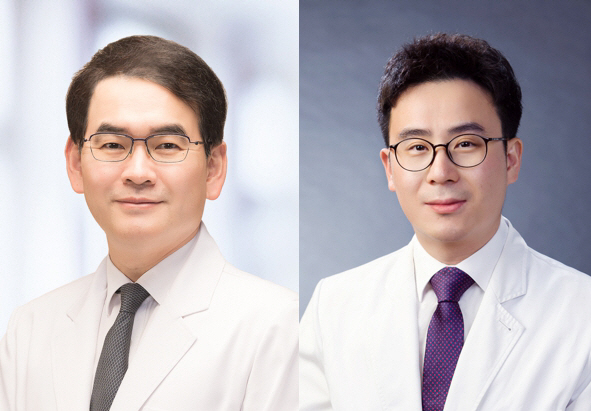Gastric cancer patients recover faster after surgery, less pain
|
Gastric cancer is the fourth most common cancer in Korea, and radical resection surgery is the key treatment if detected early or accompanied by lymph node metastasis. Recently, most gastric cancer surgery has been performed in a minimally invasive manner using laparoscopy or robots, but the burden on patients in the recovery process is still high due to postoperative pain and decreased gastrointestinal function.
ERAS is an evidence-based multidisciplinary management strategy to help patients recover quickly and safely before and after surgery. Although it has been established as a standard treatment in various cancer surgery fields such as colon cancer, biliary tract cancer, and lung cancer, centering on Europe, the effectiveness of the ERAS program optimized for minimally invasive surgery, which is widely applied in gastric cancer with a high prevalence in Asia, especially in domestic gastric cancer surgery, has not been clearly demonstrated.
In response, Professor Park Do-joong of the gastrointestinal surgery department at Seoul National University Hospital and Professor Lee Ho-jin of the Department of Anesthesiology and Pain Medicine developed an ERAS program dedicated to minimally invasive gastric cancer surgery tailored to the domestic clinical environment and conducted a prospective randomized controlled clinical trial of a total of 92 gastric cancer patients who underwent laparoscopic or robotic distal gastrectomy from February 2023 to May 2024. Patients were divided into the ERAS group (45) and the existing treatment group (47).
The ERAS program applied this time consisted of ▲ minimizing fasting before and after surgery (including consumption of carbohydrate drinks before surgery) ▲ ultrasound-guided abdominal nerve block ▲ multiple analgesic strategies including non-narcotic analgesics ▲ preventive management of zoning and vomiting. It is characterized by the implementation of a safer and evidence-based integrated recovery strategy, away from the existing narcotic pain management-centered pain management.
The key indicators of evaluation were QoR-15K scores measured at 24, 48, and 72 hours after surgery (Quality Assessment Questionnaire of Recovery in Korean Version, total score from 0 to 150). QoR-15K consists of 15 questions evaluating postoperative recovery status across five areas: physical well-being, emotional state, physical independence, psychological support, and pain management. According to the existing literature, the researchers judged that if the score difference was more than 8 points, it was a clinically meaningful improvement. The results showed that the ERAS group recorded an average QoR-15K score of 16 points higher than that of the conventional treatment group (95% confidence interval: 8.9-23.0, P<0.001), and that the quality of postoperative recovery was significantly improved both statistically and clinically.
In the secondary evaluation index, the ERAS group showed an overall better recovery pattern. The pain score for coughing at 48 hours after surgery was 5 points on average in the existing treatment group, while the ERAS group was 3 points lower, and the use of narcotic painkillers at 72 hours after surgery decreased by about 40% from an average of 1260 μg to 780 μg in the ERAS group. The I-FEED score, which reflects long-term function recovery, improved to an average of 3 points in the existing treatment group and 1 point in the ERAS group based on 24 hours after surgery, and the time it took to discharge the first gas was 21 hours faster on average in the ERAS group. The overall hospital stay was also 1 day shorter in the ERAS group on average.
The research team evaluated that the ERAS program not only effectively improves the quality of recovery for gastric cancer surgery patients, but also suggests that it can shift away from the existing excessive fasting and narcotic painkillers-centered management practices to a more efficient and safe recovery model. He also explained that it is expected to reduce social and economic costs by shortening the hospitalization period.
Professor Hojin Lee (first author, Department of Anesthesiology Pain Medicine) "Although excessive fasting and pain management centered on narcotic painkillers are still widely used in Korea before and after surgery, this study confirmed that a more grounded magic management strategy is effective."We intend to contribute to establishing new surgical management standards that value the quality of recovery in the future."
Professor Park Do-joong (Gastrointestinal Surgery, corresponding author) said, "This clinical trial is an important study that demonstrates the effectiveness of the ERAS program specialized for gastric cancer patients in a randomized comparison method. A multi-center joint study involving 10 hospitals in Korea is also underway, and we will also work hard to lay a policy foundation for this program to become a standard treatment guideline for gastric cancer surgery in Korea in the future."
The study was carried out as part of a cancer conquest promotion research and development project supported by the Ministry of Health and Welfare and the National Cancer Center, and the results of the study were published in the recent issue of the international journal 'International Journal of Surgery'.
|
This article was translated by Naver AI translator.





